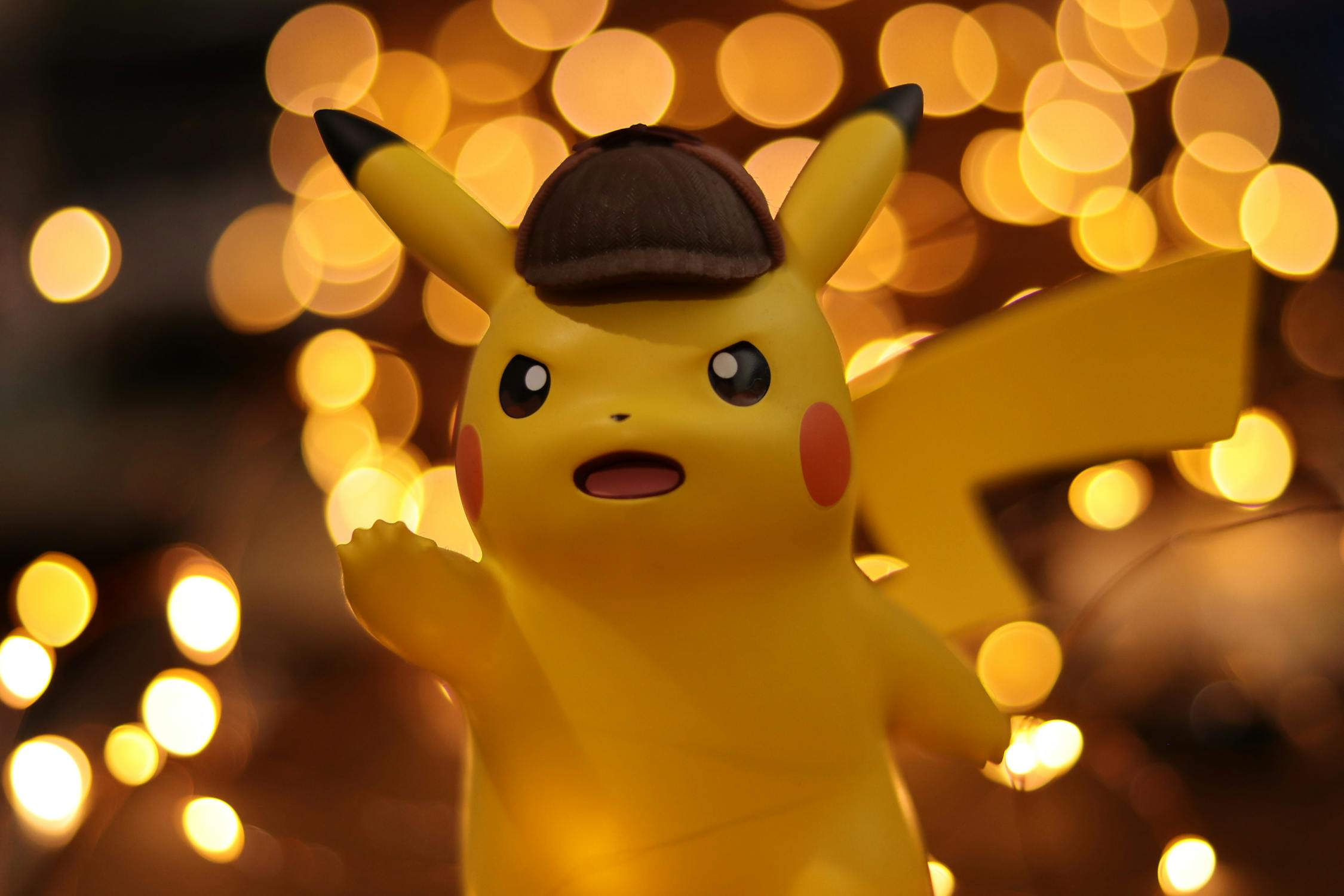Pokémon, short for "Pocket Monsters," is a global phenomenon that has transcended generations and borders. This captivating franchise, created by Satoshi Tajiri and Ken Sugimori, has not only revolutionized the world of video games but has also left an indelible mark on pop culture. With its rich lore, diverse creatures, and an ever-expanding universe, Pokémon continues to capture the imaginations of fans young and old.
The Birth of a Phenomenon
Pokémon made its debut in 1996 with the release of the video games Pokémon Red and Green for the Game Boy in Japan. The concept was simple yet revolutionary: players assumed the role of Pokémon Trainers, capturing and training creatures to battle each other. The goal? To become the Pokémon Champion by defeating the Elite Four and completing the Pokédex, an in-game encyclopedia of all known Pokémon species.
Satoshi Tajiri, the visionary behind Pokémon, drew inspiration from his childhood fascination with collecting creatures and his love for arcade games. Tajiri envisioned a world where players could connect their Game Boy systems and trade Pokémon, fostering social interactions and cooperation. This innovative multiplayer element laid the foundation for what would become a global phenomenon.
Gotta Catch 'Em All
The phrase "Gotta Catch 'Em All" became the rallying cry for Pokémon fans worldwide. It encapsulated the essence of the games: the quest to capture all 151 (later expanded to over 800) unique Pokémon species. Each Pokémon had its characteristics, types, and abilities, adding layers of strategy to battles. This complexity, combined with the sense of adventure and exploration, made the games incredibly addictive.
Pokémon's success extended beyond video games. An animated series, trading card game, toys, and merchandise quickly followed, solidifying its status as a multimedia juggernaut. The Pokémon Trading Card Game, in particular, became a sensation of its own, with collectors and players alike searching for rare holographic cards.
Pikachu: The Iconic Mascot
At the heart of Pokémon's success lies Pikachu, the franchise's beloved mascot. This electric-type Pokémon, resembling a cute yellow mouse with red cheeks and a lightning bolt-shaped tail, quickly became an icon. Pikachu's charm and relatability endeared it to fans of all ages, making it the face of Pokémon.
Pikachu's popularity extended far beyond the games and TV series. It became a symbol of Japanese pop culture and even served as Japan's official mascot for the 2014 FIFA World Cup. The annual Pikachu Parade in Yokohama draws thousands of fans who come to witness a procession of costumed Pikachu characters, showcasing the enduring appeal of this iconic creature.
The Power of Nostalgia
For many, Pokémon is more than just a game; it's a cherished part of their childhood. The franchise's ability to evoke nostalgia is a testament to its enduring appeal. Adults who grew up with Pokémon in the '90s now introduce the franchise to their own children, creating a multi-generational fanbase.
The Pokémon Company has capitalized on this nostalgia by releasing remakes and reimaginings of classic games, such as Pokémon Let's Go, Pikachu! and Pokémon Let's Go, Eevee!, which harken back to the original Pokémon Red and Blue titles. These games allow players to revisit the Kanto region while introducing modern gameplay elements.

Evolving with the Times
Despite its nostalgic roots, Pokémon has never rested on its laurels. The franchise continually evolves to stay relevant in an ever-changing gaming landscape. The introduction of new generations of Pokémon, innovative gameplay mechanics, and the move to 3D graphics in mainline games like Pokémon Sword and Shield demonstrates this commitment to progress.
Additionally, Pokémon has embraced mobile gaming with titles like Pokémon GO, which took the world by storm in 2016. This augmented reality game encouraged players to explore the real world to catch virtual Pokémon, fostering community engagement and outdoor activity.
The Global Community
Pokémon has fostered a global community of fans who come together to celebrate their shared love for the franchise. Pokémon conventions, tournaments, and online forums provide spaces for fans to connect, trade, and battle. The competitive scene, especially in the Pokémon video games and trading card game, is vibrant and highly competitive.
The Pokémon community also demonstrates its creativity through fan art, fan fiction, and fan-made games. Many fans have turned their passion for Pokémon into careers, becoming artists, writers, and game developers inspired by the enchanting world of these creatures.
Conclusion
Pokémon's journey from a simple Game Boy game to a global cultural phenomenon is a testament to its enduring appeal. Its ability to capture the hearts of fans across generations, foster a sense of community, and evolve with the times ensures that Pokémon will continue to enchant and inspire for years to come. As long as there are trainers willing to embark on adventures and declare, "I choose you, Pikachu!" the magic of Pokémon will endure.
